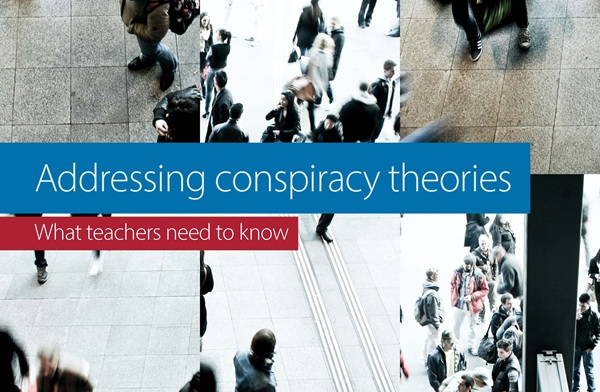Addressing conspiracy theories: what teachers need to know

Conspiracy theories flourish in times of crisis and are more visible than ever, spreading online and entering mainstream discourse. Raising awareness and strengthening critical thinking are key to reducing their impact. Educators, in both formal and non-formal settings, play a crucial role in building learners' resilience by equipping them with media and information literacy skills.
This document supports educators working with primary, secondary and higher education learners by:
- Explaining why conspiracy theories are so popular and how they cause damage.
- Helping to distinguish real conspiracies from conspiracy theories and recognise warning signs.
- Sharing strategies that may develop people’s resilience to conspiracy theories.
- Providing practical advice on discussing conspiracy theories with learners.
- Helping teachers create a classroom climate that fosters respectful dialogue, open discussion and critical thinking.
The document is available in English, French, German and Spanish.
Read online: Addressing conspiracy theories: what teachers need to know
Additional information
-
Education type:School EducationVocational Education and Training
-
Evidence:N/A
-
Funding source:National government
-
Intervention level:Universal
-
Intervention intensity:N/A
-
Published by:UNESCO
-
Target audience:TeacherStudent TeacherCareers CouncillorHead Teacher / PrincipalTeacher Educator
-
Target audience ISCED:Primary education (ISCED 1)Lower secondary education (ISCED 2)Upper secondary education (ISCED 3)Post-secondary non-tertiary education (ISCED 4)
-
Year of publication:2022
